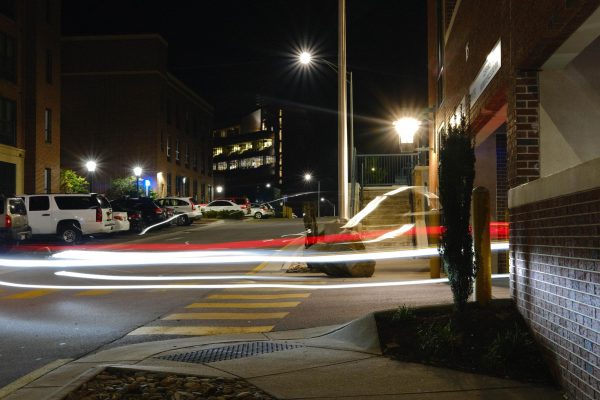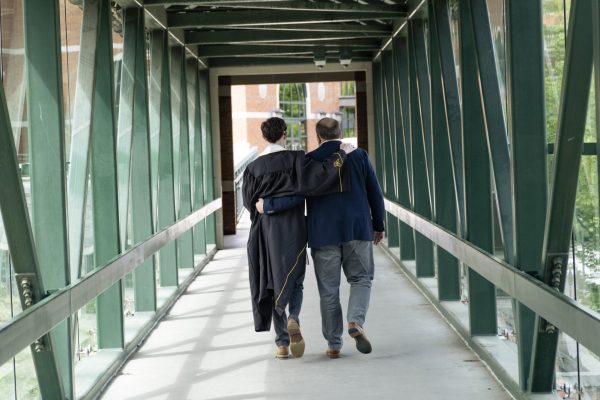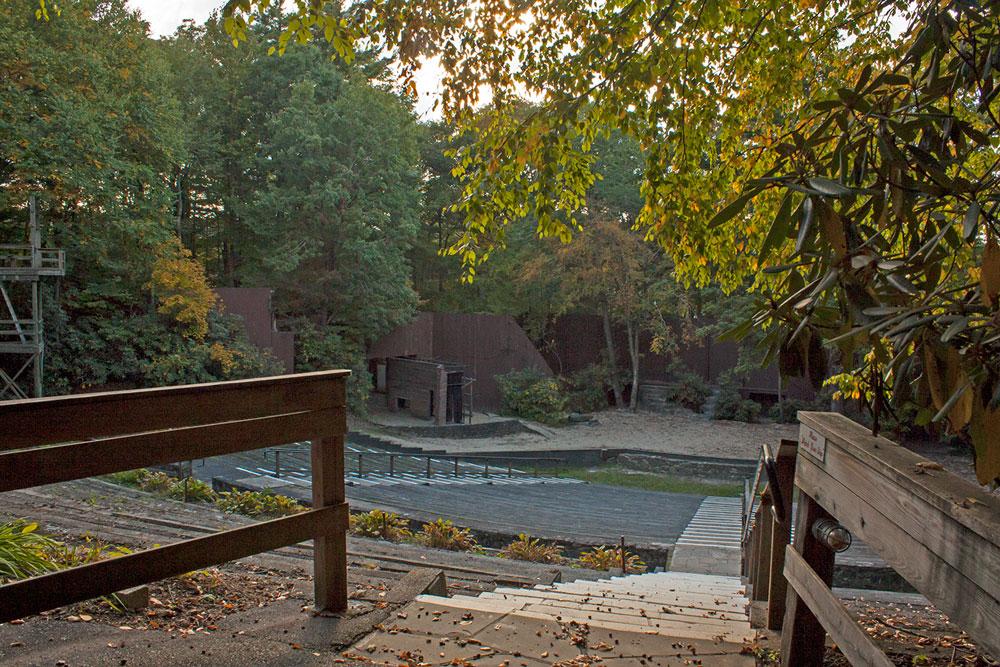Following a nearly year-long struggle between the Town of Boone and Horn in the West, the local historical outdoor drama that has been running since 1952 now has until the end of the year to sort out their licensing agreement in response to safety demands from the town.
Students and community members spoke out at a public hearing Sept. 18 in response to mounting debates, but the future of the space is currently unknown past the end of the year.
The Southern Appalachian Historical Association, the organization that runs Horn in the West, as well as the Hickory Ridge Homestead Museum, has had an ongoing miscommunication issue with the Town of Boone.
The Town of Boone owns all of the Horn in The West theater space, Hickory Ridge Living History Museum, Strawberry Hill trails and Daniel Boone gardens, as well as the parking lot that houses the Watauga County Farmer’s Market and student parking. Individual agencies, like Horn in the West, then receive licenses to use the property.
“Back in November, there was an issue and I came into the matter when I heard that the town was going in and tearing the stage and scenery down without any notice; them having decided that because we had an absolute terrible season that prior summer and they were planning to spend $20,000 to tear the decrepit stage down with no plans to rebuild,” said Emily Candelario, a senior theatre major and past participant with Horn in the West, who fronted student efforts against this issue.
Katy Cook, a SAHA spokesman, told the High Country Press in May that the two primary factors leading to the financial difficulties that caused the facilities to suffer in quality and upkeep were due to rained out shows the season before and the loss of a $5,000 N.C. Arts Council grant.
Members of the student body and community protested this first move against Horn in the West at the Jones House during a meeting of the cultural arts board in November 2013. SAHA was able to work out a new license agreement with the town for that summer’s upcoming season of performances.
However, “SAHA also failed to complete agreed upon work prior to the start of the 2014 season of Horn in the West and has yet to finish it…. The town, in good faith, issued a conditional certificate of occupancy so SAHA’s season could begin on time, based on SAHA’s promise to complete this work,” Mayor Andy Ball wrote in a letter to the organization dated Aug. 22 – that SAHA officials said they received days late, in one of many communication issues.
During the last week of the show that summer, theater technicians, including Candelario, arrived one night to find that the town had cut off the power supply.
“To my knowledge, someone from the Town of Boone came in on our only day off and claimed that our lighting design, the footlights at the front of the stage, were not properly wired, etc., for safety standards,” Candelario said. “Keep in mind, we perform on a sand stage.”
Horn in the West convinced town council to allow them finish the final 6 shows of their season, but revoked their license shortly after.
Candelario became the grassroots leader in student involvement for an organization called Supporters of SAHA, or SOS, who gathered nearly 1,500 signatures on a petition to keep the theater in business.
A public debate went on for over two hours at the town council meeting to decide the issue on Sept. 19, ending in a 4-1 vote, with Jennifer Peña opposed to the reinstatement of the license until the end of this year.
Story: Lovey Cooper, Senior A&E Reporter












